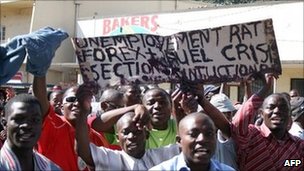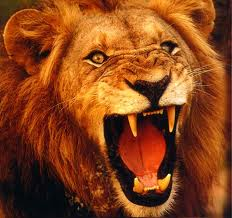By Our Correspondent
Economists use terms such as currency appreciation, depreciation, devaluations and revaluations to describe changes that are made to determine the exchange rates of a domestic currency. This is because the exchange rate plays an important role in promoting export trade. The exchange rate is determined by demand in the foreign exchange market created by demand by foreigners for the domestic currency. This means the strength of the domestic exchange rate is controlled by exports, donor inflows and the flow of foreign direct investments by investors.
Therefore, it is a fallacy for His Excellency Dr Bingu wa Mutharika to expect the value of a domestic currency to remain unchanged. It is citizens who create demand for the local currency after they receive foreign proceeds from exports. When tobacco farmers sell more tobacco at better prices, the create demand for Kwachas. This means a country that does not export enough, nor receive large amounts of donor support and a stream of foreign direct investors cannot have a strong currency. The flow of foreign direct investments can also be increased by the number of tourists who visit the country and spend foreign currencies.
The question of exports is very tricky. China is now a leading exporter but its currency is still low to attract import orders. Japan has last night has also depreciated the Yen to make her exports attractive. The strength of the domestic currency determines export volumes. Everyone knows that exports add significantly to the aggregate demand for the output of exporting nations. At the macro-economic level, two factors determine export volumes. The first is economic conditions in the importing countries. If the economic conditions are weak in the importing country as it is the case with Japan, Spain and Italy now, demand for imports is also weak. Buyers from such economies become difficult to deal with regardless of quality of the product. In short demand for imports is stronger in growing economies like China, Thailand and Brazil and relatively weaker in depressed economies like the United States now.
Once the economic conditions of the major economies start to weaken, there is no way smaller economies can be strong. The other factor affecting volumes of exports is the strength of the local currency relative to foreign price levels. To compete in a foreign country, it is necessary to realize that international buyers have other market options and they compare prices before making their buying decision. The other day a buyer in London wanted to import beans from Malawi. on FOB Felixtowe port basis but a Chinese exporter was relatively cheaper. Therefore the order was given to the Chinese exporter. This means the major problem for Malawi exports is the value of the Kwacha. The Kwacha is over valued at K152 to the United States Dollar. It is not at parity with the Chinese Yuan.
The other day, two tobacco farmers were arguing on the low price of tobacco at the Limbe Auctions. The first argument was the nature of the market. Luckily both agreed that the Auction markets although located in Malawi were international export markets. In other words, buyers bought the tobacco in dollars in the same way they could buy it in their home countries. However, government through the Tobacco Association of Malawi agreed to pay the farmers in local currency. This is where it is wrong. The farmers are losing out in the process. Instead of the tobacco farmers being paid their dollars for them to go to the Bureau de Change to sell the dollars at higher exchange rates, the government is exchanging the dollars at lower rates at Commercial Banks Why is the tobacco farmer not given the choice to get the best for his dollars? Someone is benefitting from the exchange rate difference. No wonder some banks have opened a specialized “Makwacha Bank Account” for tobacco farmers which is opened without money.
It was unbelievable for the First Lady Madam Callista Mutharika to fool villagers that they do not need foreign currency because they do not go to South Africa. Strangely, it the villagers who grow tobacco which is sold in dollars but paid in Kwacha by TAMA. After being paid fewer Kwachas, the tobacco farmer have to buy expensive fertilizers from trader who import these fertilizer using dollars brought into the country by the poor farmers. The trader decides the selling price for the fertilizer without asking the President for the right price which is a lot higher than what it cost him. Consequently, the tobacco farmers cannot afford to buy the fertilizers because of not having enough Kwachas. If the tobacco farmers were given their dollars at the Auction, they should have exchanged them at a Bureau de Change and earn more Kwachas. In this case the poor are getting poorer because His Excellency Dr Bingu wa Mutharika and his wife do not see that the value of the Kwacha is dangerous to villagers who work hard. Therefore, it is Bingu who is killing poor Malawians.
Subscribe to our Youtube Channel:

.jpeg&w=60&q=100&h=60)




.jpeg&w=60&q=100&h=60)





